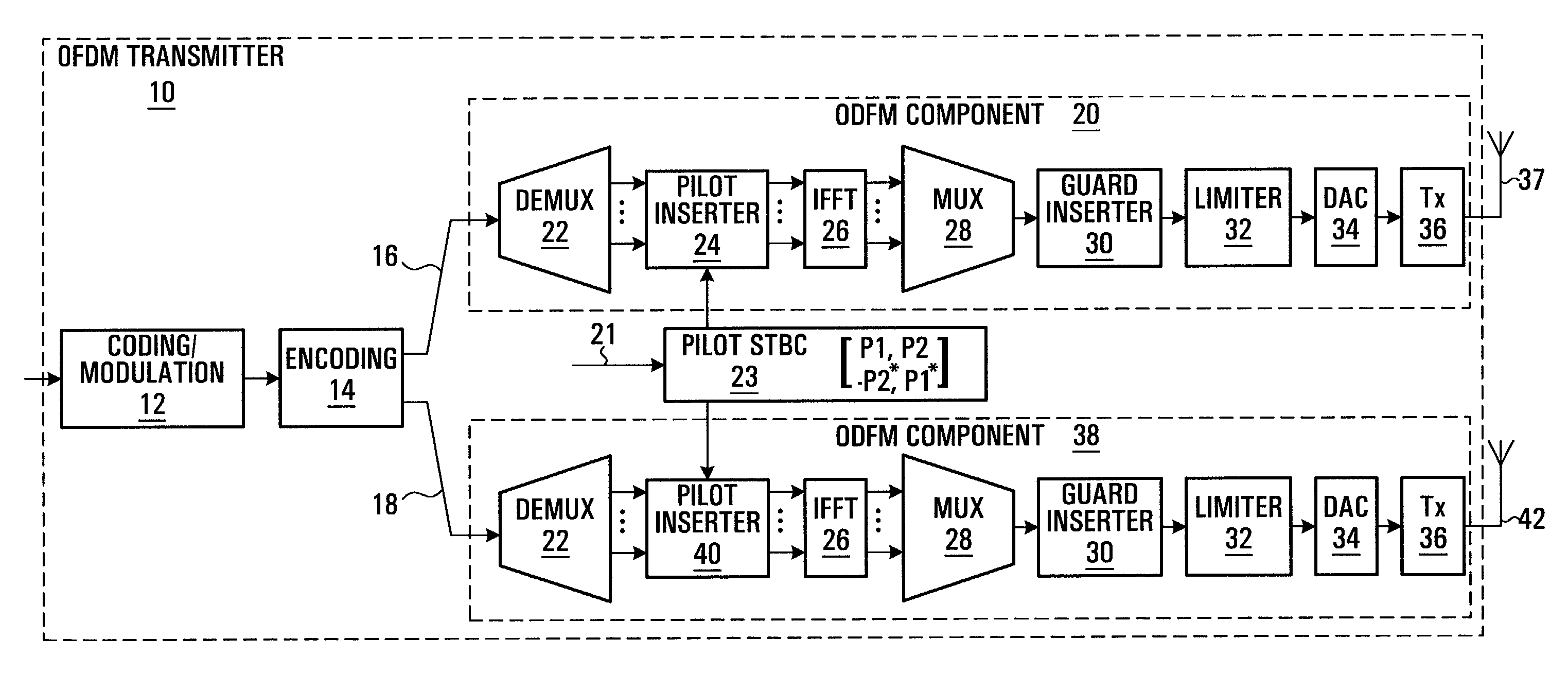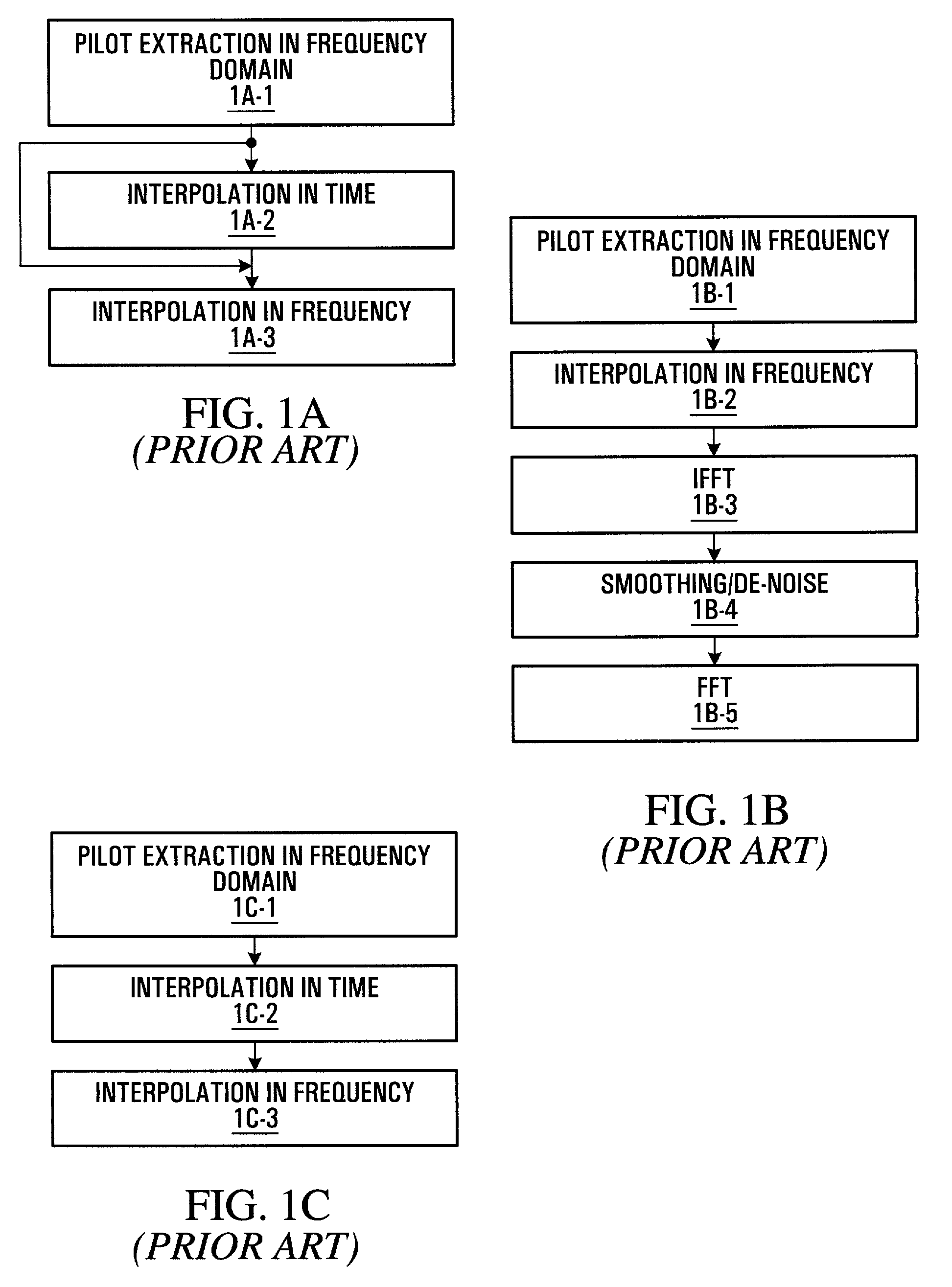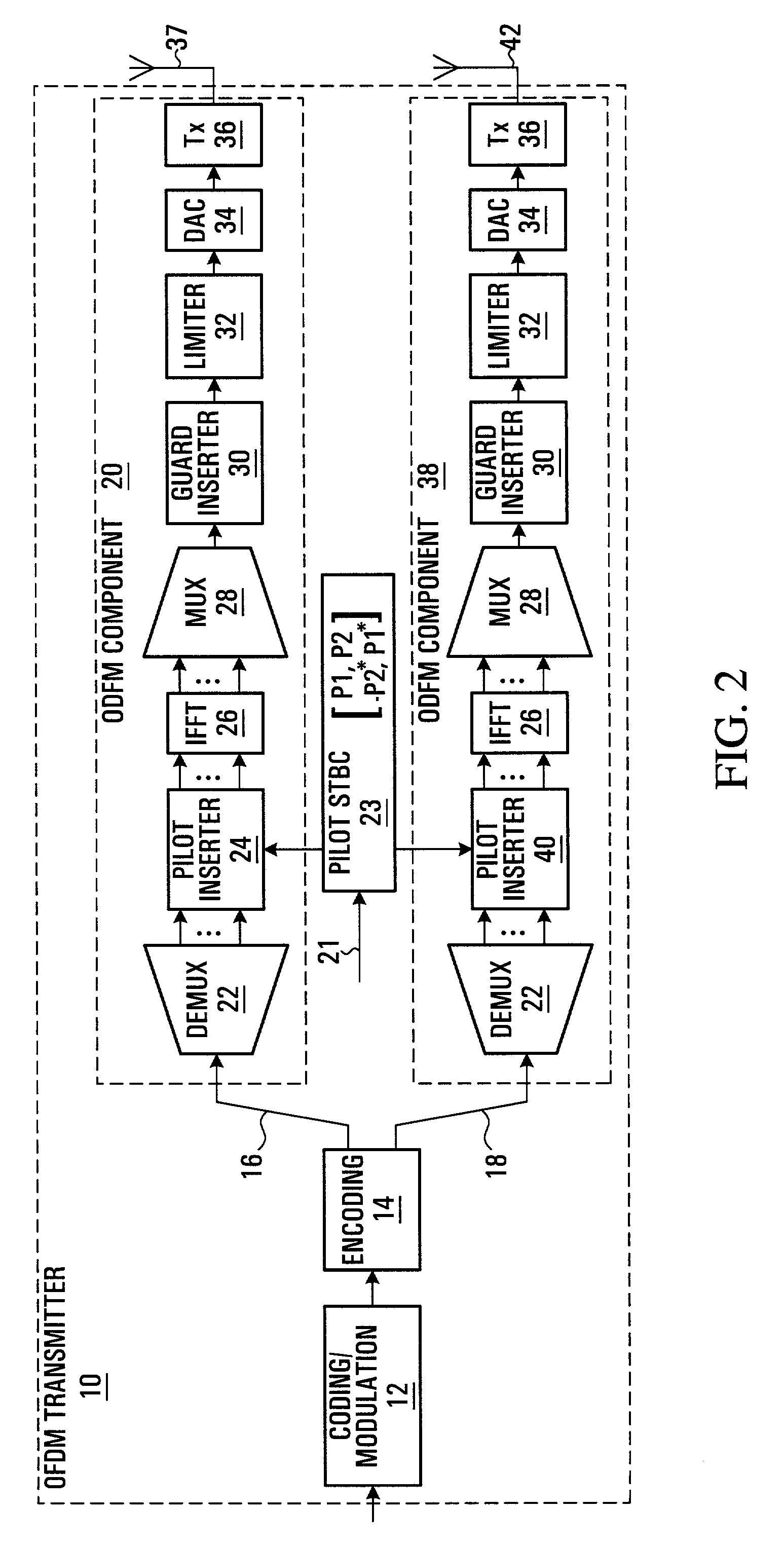Scattered pilot pattern and channel estimation method for MIMO-OFDM systems
a pilot pattern and channel estimation technology, applied in the field of scattered pilot pattern and channel estimation method of mimoofdm system, can solve the problems of only suitable pattern, only challenging minimum overhead, only suitable pattern, etc., and achieve the effect of reducing scattered pilot overhead, less computational complexity, and robustness
- Summary
- Abstract
- Description
- Claims
- Application Information
AI Technical Summary
Benefits of technology
Problems solved by technology
Method used
Image
Examples
Embodiment Construction
[0060]The following sections describe a MIMO-OFDM transmitter / receiver and scattered pilot insertion. By way of introduction, a OFDM frame consists of the preamble OFDM symbols and regular OFDM symbols. Each OFDM symbol uses a set of orthogonal sub-carriers. When there are two transmit antennas, two OFDM symbols form a STTD block. For regular OFDM symbols, some sub-carriers are used as pilot sub-carriers to carry pilot symbols while the others are used as data sub-carriers to carry data symbols. The pilot sub-carriers are modulated by pilot symbols generated by QPSK. The data sub-carriers are modulated by complex data symbols generated by QAM mapping. STTD coding is applied to the pilot sub-carrier pairs located at the same frequency within one STTD block.
[0061]Referring to FIG. 2, a block diagram of a Multiple-Input Multiple-Output (MIMO) Orthogonal Frequency Division Multiplexing (OFDM) transmitter provided by an embodiment of the invention is shown. The OFDM transmitter shown in ...
PUM
 Login to View More
Login to View More Abstract
Description
Claims
Application Information
 Login to View More
Login to View More - R&D
- Intellectual Property
- Life Sciences
- Materials
- Tech Scout
- Unparalleled Data Quality
- Higher Quality Content
- 60% Fewer Hallucinations
Browse by: Latest US Patents, China's latest patents, Technical Efficacy Thesaurus, Application Domain, Technology Topic, Popular Technical Reports.
© 2025 PatSnap. All rights reserved.Legal|Privacy policy|Modern Slavery Act Transparency Statement|Sitemap|About US| Contact US: help@patsnap.com



